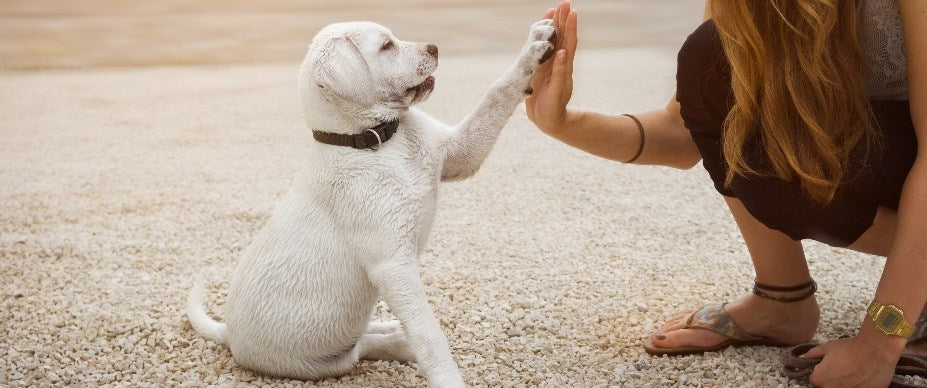Training your puppy is essential for a well-mannered companion and a harmonious home. This blog covers effective methods for potty and behavior training, emphasizing the importance of consistency, patience, and positive reinforcement. Learn how to establish a regular potty schedule, recognize signs your puppy needs to go, and use crate training to your advantage. Additionally, discover tips for socializing your puppy, teaching basic commands, and preventing unwanted behaviors like biting and chewing. With these strategies, you can ensure your puppy grows into a happy, obedient dog.
Introduction: Potty and Behavior Training for Puppies
Potty training and behavior training are essential for raising a well-mannered puppy. Proper training enhances home life and strengthens the bond with your furry friend. In this guide, we’ll explore effective methods for potty and behavior training to ensure your puppy grows into a happy and obedient dog.
What is Puppy Potty Training and Why is It Important?
Potty training involves teaching your puppy where and when to relieve themselves. It’s crucial for maintaining a clean home and preventing bad habits. Without proper training, a puppy may develop anxiety and behavioral issues. Establishing a consistent potty routine helps your puppy understand expectations, leading to a happier and healthier life.
How to Potty Train Your Puppy
Set a Schedule
Establish a regular feeding and potty schedule. Take your puppy outside first thing in the morning, after meals, and before bedtime. Consistency helps your puppy learn when and where to go.
Choose a Potty Spot
Designate a specific area for your puppy to use as their bathroom. Always take them to this spot so they associate it with potty time.
Use Positive Reinforcement
Praise and reward your puppy with treats and affection every time they potty in the correct spot. Positive reinforcement encourages good behavior.
Watch for Signs
Puppies often show signs when they need to go, such as sniffing around or circling. Pay attention and take them outside immediately if you notice these behaviors.
Crate Training
Use a crate to assist with potty training. Puppies are less likely to soil their sleeping area.
Be Patient
Accidents will happen. Clean them up promptly and avoid punishment, as it can create fear and anxiety. Consistency and patience are key.
Tips and Reminders for Potty Training
Stick to a Routine
Consistency is crucial. Maintain the same schedule and potty spot.
Limit Freedom
Until your puppy is fully potty trained, supervise them indoors and restrict access to other rooms.
Use a Command
Teach a specific command, like "Go potty," to signal that it’s time to relieve themselves.
Understanding Puppy Behavior
Behavior training complements potty training. Teaching your puppy good manners early prevents behavioral issues in the future.
How to Train Puppy Behavior
Socialization
Expose your puppy to various people, places, and experiences to build their confidence and reduce fear. Socialization is crucial during the first few months.
Basic Commands
Teach basic commands like "sit," "stay," and "come." Use positive reinforcement and short, consistent training sessions.
Bite Inhibition
Puppies explore the world with their mouths. Teach bite inhibition by yelping and withdrawing attention when they bite too hard.
Chewing
Provide appropriate chew toys and redirect your puppy’s attention to them if they start chewing on furniture or other items.
Leash Training
Introduce your puppy to a leash early on. Start with short walks and gradually increase the distance. Use treats and praise to encourage good behavior on the leash.
Tips and Reminders for Behavior Training
Firstly Be Consistent
Consistency in commands and rules helps your puppy understand expectations.
Secondly Positive Reinforcement
Reward good behavior with treats, praise, and playtime.
Thirdly Avoid Punishment
Focus on redirecting unwanted behavior rather than punishing your puppy.
Conclusion
Training your puppy requires patience, consistency, and positive reinforcement. Thus by following these tips for potty and behavior training, you will set your puppy up for success and ensure a happy, well-behaved companion. Therefore remember, the effort you invest in training now will lead to a well-mannered dog in the future.
At last for additional tips and resources on dog training, contact us.


